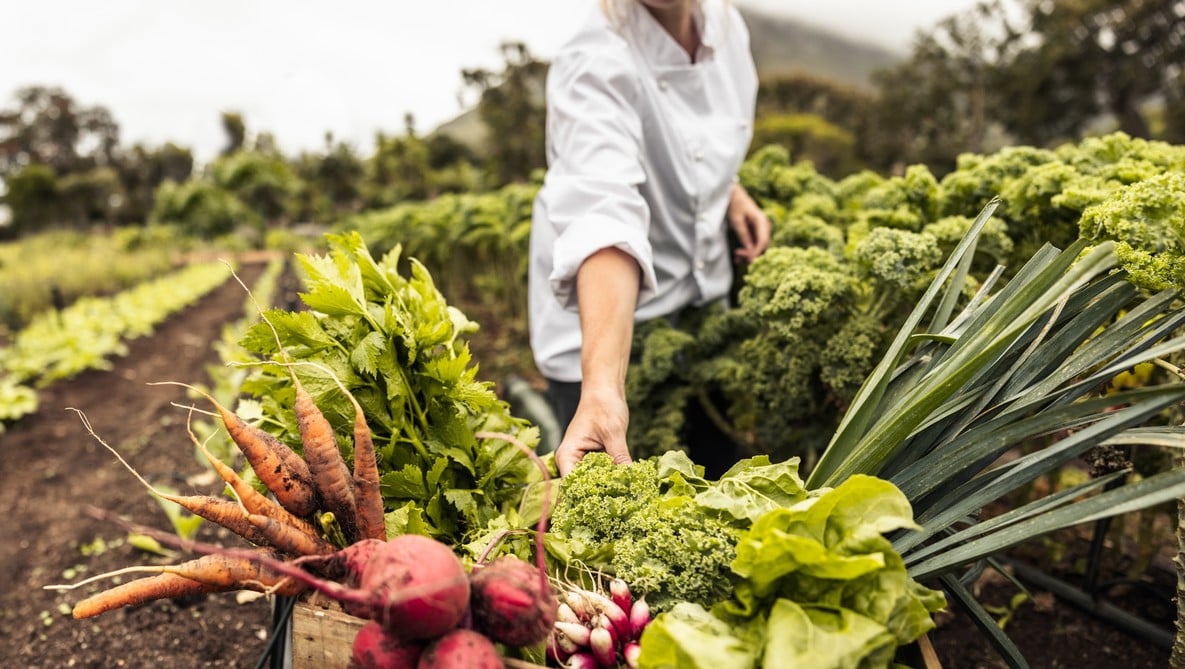Balancing Food Safety and Sustainability Within Modern Regulation Standards
Sustainability has become an increasingly important metric over the past decade in every industry, from automotive to food and beverage. In fact, FoodBev Media reports that sustainability is the top industry trend of 2023. The movement is picking up more momentum than ever, but the food and beverage manufacturing industry is still lacking the infrastructure to support sustainability as it does overall food safety.
At this stage, the demands of ensuring food safety can often clash with the time, funding, and other resources needed for more sustainable practices. Can food safety and sustainability coexist? What obstacles stand in the way? And how far have we come getting food safety and sustainability on the same footing? Here’s what you need to know.
Measuring Sustainability In the Food Supply Chain
Currently, there are five elements that stakeholders throughout the supply chain consider when evaluating sustainability:
- Ethical and sustainable sourcing. Were the ingredients used in a product created without the use of exploited labor or harmful environmental practices like land clearing? This is especially relevant to palm oil farming practices. Suppliers that are certified by the Roundtable on Sustainable Palm Oil (RPSO) avoid harmful growing and harvesting methods.
- Conservation. How much water, fertilizer, and other resources were used to produce agricultural commodities?
- Waste volume. How much material was discarded throughout the value chain on the way from the farm, through production, to a retailer?
- Organically grown. Is the product made with USDA-certified organically grown
- GMO-free. Is the product made with ingredients that have not been genetically modified?
The Barriers to Improving Sustainability
Though stakeholders understand many sustainability metrics, and there are even certification schemes in place, the industry has still not adopted many sustainable practices. Here are the biggest obstacles in the way:
Uneven burdens throughout the supply chain
The primary driver of demand for sustainability comes from consumer pressure on retailers — the very end of the value chain. However, improving most sustainability metrics involves making changes in the agricultural sector. As a result, farmers and growers face more challenges in sustainability because it involves overhauling so many of their processes and business models. For example, switching to organic farming practices requires significant investment and even limits yield — but they won’t necessarily be able to sell products for higher prices to their buyers, which disincentivizes innovation.
Costs of new certifications
In addition to the capital investment involved for farmers and growers to change operations and improve sustainability metrics, food and beverage companies also incur additional costs when it comes to attaining certifications. Applications, inspection fees, and the costs of travel for auditors can quickly add up and eat into already small profit margins. Companies throughout the food supply chain may struggle to afford voluntary certifications, even if they’re compliant with certain sustainability standards.
Conflicts with food safety
In some cases, efforts to improve sustainability metrics may directly conflict with the principles of food safety. For example, companies trying to curb waste may be tempted to ignore temperature nonconformance to avoid throwing away potentially contaminated food. This would reduce waste, but could also endanger public health.
The Path to Integrating Food Safety and Sustainability
Until more infrastructure, incentives, and support are available from regulators and other government bodies to facilitate wider adoption, sustainability is at the mercy of individual companies. Therefore, industry-wide collaboration between manufacturers, farmers, distributors, and other stakeholders to reduce costs is one of the most important steps the industry can take to improve sustainability while maintaining food safety.
On the certification front, AIB International is able to conduct food safety inspections and RSPO certification audits in a single visit to minimize travel and audit costs, removing a significant barrier to certification. As the industry’s sustainability landscape continues to evolve, the team at AIB International expects to add additional services related to integrating food safety and sustainability. Click here to learn about our current RSPO certification offerings.


